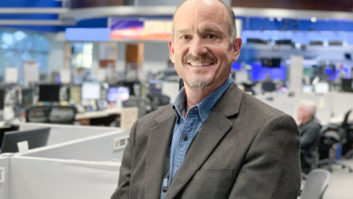The following is an excerpt of a talk about the challenges faced by “old” media at the University of the Witwatersrand Media Conference, held 20 October 2009, in Johannesburg, South Africa.
Integrating an FM tuner into phones or any new device — is that enough to save radio?
Let’s be clear, radio is not about to die. Its business model however — is under severe pressure.
As long as radio owners continue to do business the way that they have always done, with little investment in talent and content and then rely on advertising alone to fund themselves, they will face some serious challenges.
Here’s the delicious irony though.
As things stand, radio owners like me have been too willing to give up my content to as many devices and platforms as I can in the name of being available to my audience, wherever they are.
I have done this in the hope that I can monetize every channel on which my brand appears. Perhaps I have been premature!
All that I have succeeded in doing is moving from a world of few competitors and limited choice to a world of infinite choice and billions of competitors.
Also, I have made this transition with the view that traditional media models for success will serve me in this new space.
That’s a mistake since the choice and variety in content and business models in this world are almost infinite.
I need to learn new skills to be noticed on the World Wide Web.
I do have the advantage of an established radio audience. But, why should they come to me when they have so many options? If they do come, why should they return and what will keep them interested?
If I can answer those questions successfully, will I be able to capture value/monetize the opportunity?
Does the world of exploding micro-media also mean micro-money for most players?
So what is the way forward? I don’t know any more than you do.
So I can do one of three things.
- I can hedge my bets by trying many different things and hope for something to succeed.
- I can persevere with how I have always done things and hope for the best, its working fine now.
- I can become agnostic — waiting for proof of the divine, the lit path that leads me to the right answer before I commit. The risk is that I die or go insolvent before the revelation comes.
The one thing that appears to be a foregone conclusion is that the revenues and profits of yesteryear may be gone for a while.
However, I also have the nagging suspicion that things will go full circle. That low cost micro-media will dominate for a long time but that those that become really popular will ally with others who are equally so, to come together and create something where the sum of the parts is greater than the separate parts on their own. It sounds like mergers and acquisitions again — the rise of a conglomerate.
On the other hand, Rupert Murdoch and Koos Becker will not go quietly. Already Murdoch is insisting on charging audiences for access to his online properties. What if enough publishers started applying old media economic models to the web? What if the only way to get the really useful information was via a paid subscription? Would the old ways thrive or will it be one last hurrah before the whimper?
Some specialized content sites are doing this fairly well. But for each one with a payment gateway, there are dozens more who are happy to give the information away for nothing.
Certainly if there is a shake out of sorts, many will perish. Others will have to be inventive to survive.
Some far brighter people that I have been reading say that survival requires the following tools:
- Come to terms with the rise of micro-media and an explosion of media supply.
- Understand that large overheads and limiting production to a relatively small team will not work in an era of exploding media supply.
So invest in inclusion: peer production models; open access models; sharing models. Let others add value to the productwhich creates economies for you. Give them access to the means of production for complementary goods (sounds like Marx was right after all)
Invest in production, not in attention/marketing since search is an efficient and inexpensive way to build audiences.
I’m stating the obvious here but it bears repetition. Many of today’s media businesses do understand what competencies are needed and must commit to investing in them. We’re doing it today, even though we don’t know when the change will materially affect our businesses.
Just making my product available to everyone isn’t enough. We must open it up to allow it to develop in ways that I wouldn’t have imagined.
Look for the sweet spot because there will be one.
This is usually within certain niches, but only for a time. This will allow you to make some money before imitation erodes margins again.
It’s not about the death of radio and TV. It’s about the fragmentation of attention and the fragmentation of advertising.
And it’s not about the audiences we have today, but the audiences and consumers of the future.
Omar Essack is executive director of Kagiso Media Ltd., which operates regional radio stations in Gauteng, the Western Cape, Free State and KwaZulu-Natal, as well as joint control of national radio advertising sales house RadMark.












